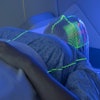Screening men who have been treated for prostate cancer based on prostate-specific antigen (PSA) levels can lower deaths by reducing the risk of metastasis within 10 years of treatment, according to a study to be presented at the upcoming American Society for Radiation Oncology (ASTRO) meeting in San Diego.
In another study to be presented at the ASTRO meeting, researchers found that aspirin taken as an anticoagulant appears to reduce prostate cancer-specific mortality. Findings from both the screening and aspirin research were among several studies highlighted in an October 25 press conference held by ASTRO of Fairfax, VA, that will be formally presented at the meeting from October 31 to November 4.
Prostate cancer screening
Chandana Reddy, a senior biostatistician at the Cleveland Clinic, and colleagues retrospectively evaluated data from 1,721 prostate cancer patients who underwent a radical prostatectomy or received radiation therapy at the hospital. The men were divided into two groups: One group was treated before 1993, and the other group was treated from 1993 onward, when prostate cancer screening began to be routinely implemented through the use of PSA testing. Patients were classified as having high-, intermediate-, or low-risk disease to determine which groups may have benefited from prostate cancer screening.
"Skeptics of routine screening have argued that it hasn't resulted in meaningful improvement with respect to survival," Reddy said. "A possible explanation is that clinical trials conducted used the wrong end point. The majority of men with prostate cancer tend to be older and have other medical conditions which often have an impact on their survival outcomes. We considered that the best way to measure screening's effectiveness was to measure its ability to decrease metastases within 10 years after treatment."
The researchers determined that 13% of all patients had developed metastatic disease. However, the 10-year metastases-free survival rate for high-risk patients treated before 1993 was 58%, compared with 82% for patients treated 1993 and later who received PSA screening. The rate for intermediate-risk patients treated before 1993 was 79%, compared with 93% for the later group. For low-risk patients, the rates were 90% and 98% for before and after 1993, respectively.
"Within each risk group, patients treated in the postscreening era had a lower chance of developing metastases," Reddy said. "Our study shows that routine screening not only improves a prostate cancer patient's quality of life by identifying the cancer earlier and initiating timely treatment to better stop metastatic disease, but it also decreased the burden of care that healthcare systems must provide."
Aspirin and prostate cancer-specific mortality
Regarding the aspirin study to be presented at the meeting, data from 5,295 men with localized prostate cancer in the Cancer of the Prostate Strategic Urologic Research Endeavor (CaPSURE) database suggest that anticoagulants such as aspirin may inhibit cancer growth and metastasis.
Kevin Choe, MD, PhD, a radiation oncologist at the University of Texas Southwestern Medical School in Dallas, and colleagues determined that men who took anticoagulants such as low-dose aspirin for 10 years following their prostate cancer treatment reduced their risk of dying from prostate cancer from 10% to 4%.
In a subgroup analysis by risk category, the reduction of prostate cancer-specific mortality was most prominent in patients with high-risk disease. Their risk of dying at 10 years was 22% for the 3,313 men who were not taking anticoagulants, compared with 4% for the 1,982 men who were.
All men in the study group had undergone a radical prostatectomy (3,523 patients) or received radiation therapy (1,772 patients). Almost 500 men undergoing radiation therapy also received androgen deprivation therapy in conjunction with their treatment.
When asked if any man diagnosed with localized prostate cancer should begin to take low-dose aspirin, Choe emphasized that the findings were premature. "Findings from this study are promising; however, further studies are necessary before the addition of aspirin to prostate cancer therapy becomes standard treatment," he said.
By Cynthia E. Keen
AuntMinnie.com staff writer
October 26, 2010
Related Reading
Radiation boosts hormone therapy for prostate cancer patients, October 25, 2010
Low-dose aspirin lowers colon cancer risk: study, October 22, 2010
JAMA editorial raises questions about breast, prostate screening, October 22, 2009
Copyright © 2010 AuntMinnie.com



















